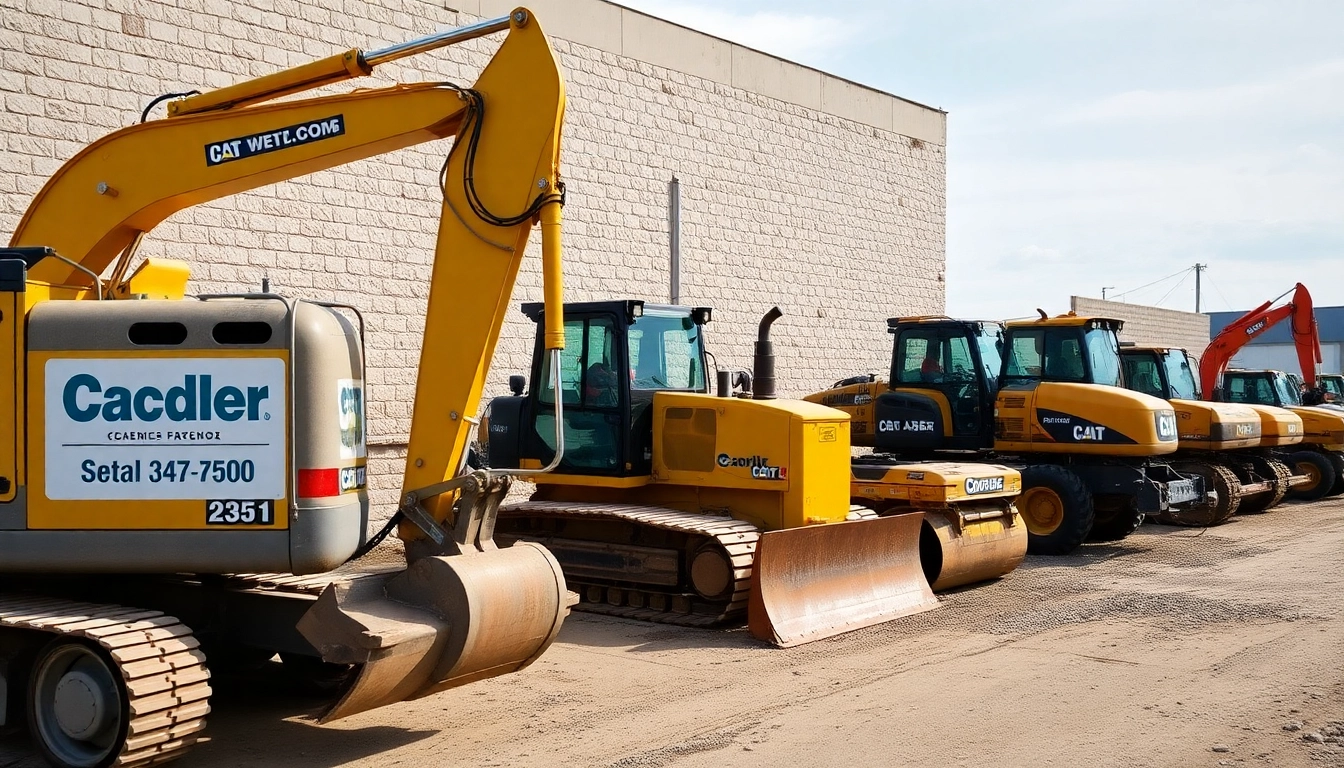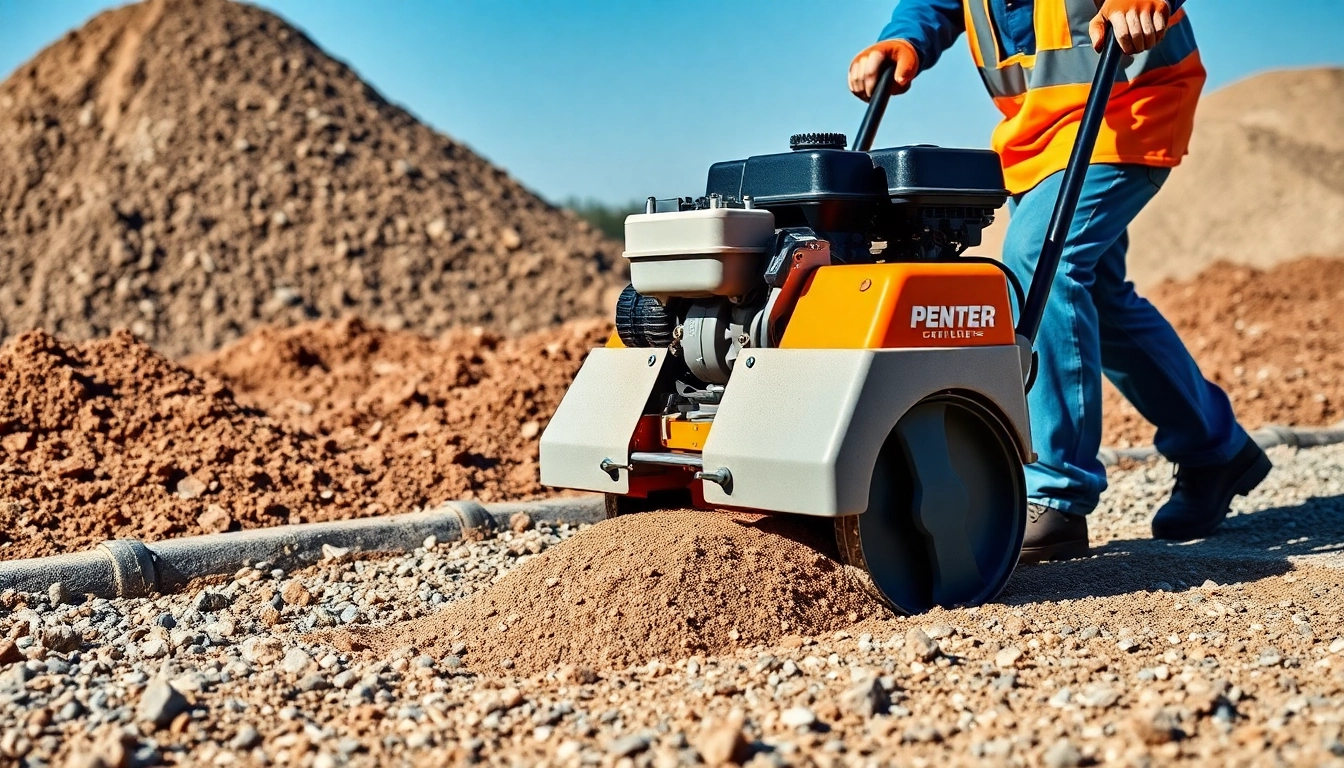Understanding Construction Equipment Rental Services
What is Construction Equipment Rental and Why It Matters
In the dynamic world of construction, efficiency, flexibility, and cost control are vital to project success. One of the most strategic approaches to achieve these goals is through construction equipment rental. This practice involves hiring machinery, tools, and other construction assets for a specific period rather than purchasing them outright. Construction equipment rental plays a pivotal role in enabling contractors, builders, and project managers to access the latest technology, maintain flexibility on project scopes, and optimize operational costs. The significance of rental services becomes even clearer when considering the substantial financial and logistical overheads associated with owning and maintaining heavy machinery, which can easily run into hundreds of thousands of pounds, along with the costs of storage, transport, and repairs.
In the competitive UK construction market, rental services also help mitigate risks related to equipment obsolescence, market fluctuations, and changing project demands. Companies can scale their machinery needs up or down seamlessly, ensure access to specialized equipment for unique tasks, and focus their capital investments on core project areas. As market leaders like Rentmas and other industry providers continue to innovate and expand their rental fleets, understanding how this model benefits project execution has become essential for industry professionals aiming for efficiency and cost-effectiveness.
Types of Equipment Available for Rent
The range of construction equipment available for rent is vast, catering to every phase of construction projects — from site preparation to finishing touches. Some key categories include:
- Earthmoving Machinery: Excavators, bulldozers, backhoes, wheel loaders, and skid steer loaders facilitate material excavation, grading, and site clean-up.
- Compaction Equipment: Plate compactors, rammers, rollers, and vibratory plates ensure proper soil compaction, which is vital for foundation stability.
- Material Handling & Lifting: Cranes, telehandlers, forklifts, and hoists enable efficient movement and placement of heavy materials.
- Construction Tools & Power Equipment: Concrete mixers, power drills, saws, and generators support various onsite tasks.
- Specialized Equipment: Pile drivers, scaffolding systems, and survey equipment are essential for niche requirements and precision work.
Major rental providers such as Brandon Hire Station and BOELS Rental offer extensive inventories that include these categories, often with options for latest model machinery equipped with telematics and smart technology for enhanced productivity and safety.
Benefits of Renting Over Buying Construction Machinery
Cost Efficiency and Budget Management
Purchasing heavy machinery entails substantial capital expenditure—often exceeding hundreds of thousands of pounds—along with ongoing costs for maintenance, insurance, and storage. Rental eliminates these burdens, converting large upfront investments into predictable operational expenses. Additionally, rental costs are tax-deductible, providing further financial benefits.
Access to Latest Technology and Equipment
Rental companies frequently update their fleets with state-of-the-art machinery featuring advanced safety features, fuel efficiency, and automation. This means contractors can leverage the latest innovations without the need for frequent capital reinvestments, improving productivity and safety standards on-site.
Flexibility and Scalability
Construction projects vary in scope and duration. Renting allows for flexible scaling—additional equipment can be leased during peak phases, and unused machinery can be returned afterward. This agility reduces idle time and storage costs, facilitating adaptive project management.
Risk Reduction and Maintenance Management
Rental providers often handle maintenance, repairs, and contingency planning, reducing operational risks. This minimizes downtime caused by equipment failure and ensures compliance with safety standards, which is crucial for project continuity and regulatory adherence.
Environmental and Sustainability Benefits
Rental companies increasingly offer eco-friendly, fuel-efficient machinery that meets stringent environmental standards. Using modern equipment can help reduce carbon footprints, supporting sustainable development goals.
How to Choose the Right Construction Equipment Rental Partner
Assessing Equipment Quality and Maintenance Standards
Selecting a rental partner requires evaluating their equipment renewal policies, maintenance schedules, and adherence to safety standards. Leading companies maintain rigorous inspection routines, regularly service machinery, and comply with UK safety regulations, ensuring reliability and safety on-site.
Customer Support and Flexibility in Rental Terms
Effective customer support, clear rental agreements, and flexible leasing options are critical. Providers should offer prompt assistance, on-site support, and adaptable terms—such as short-term rentals, extensions, and equipment swap services—to match project needs.
Pricing Strategies and Value for Money
Transparent pricing, inclusive of delivery, setup, and maintenance costs, helps prevent unforeseen expenses. Comparing quotes from reputable providers ensures competitive rates, and factoring in the quality, safety features, and after-sales support helps determine true value.
Best Practices for Using Rental Construction Equipment
Safety Protocols and Operator Training
Prioritize safety by ensuring all operators are trained on equipment use and safety protocols. Rental companies often provide training resources or certification programs. Proper training reduces accidents, prolongs equipment lifespan, and maintains compliance with health and safety legislation.
Proper Equipment Handling and Maintenance
Even with maintenance managed by the rental provider, responsible handling is essential. Operators should conduct pre-use inspections, follow manufacturer guidelines, and report issues promptly to prevent breakdowns and ensure optimal performance.
Maximizing Efficiency on Construction Sites
Effective planning of equipment allocation, batching tasks, and coordinating operator schedules maximizes productivity. Utilizing telematics and GPS tracking can improve asset utilization and monitor operational efficiency.
Case Studies: Successful Construction Projects with Equipment Rental
Project Examples Highlighting Rental Equipment Benefits
Many successful UK construction projects illustrate the value of equipment rental. For example, a commercial development in London leveraged a fleet of modern excavators and compactors to accelerate foundation work, reducing project duration by 20%. Similarly, infrastructure projects benefiting from flexible rental terms avoided capital expenses during uncertain budget periods, enhancing overall profitability.
Lessons Learned from Industry Leaders
Industry leaders emphasize the importance of partnering with reputable rental firms, adopting proactive maintenance, and investing in operator training. These measures lead to safer, more efficient project execution and higher ROI.
Measuring ROI and Project Outcomes
Effective use of rental equipment directly correlates with project completion times, safety incident reductions, and cost savings. Tracking key performance indicators (KPIs) such as equipment utilization rates, downtime, and operational costs helps quantifying the benefits of rental strategies.
Future Trends in Construction Equipment Rental
Technological Innovations and Smart Machinery
The industry is witnessing a surge in automation, telematics, and IoT integration. Smart machinery offers real-time data on usage, maintenance needs, and fuel consumption, enabling predictive maintenance and optimizing asset utilization.
Environmental Considerations and Sustainable Equipment
Green technology is transforming rental fleets, with electric and hybrid machinery becoming more prevalent. These innovations help construction companies reduce emissions, comply with environmental regulations, and achieve sustainable project goals.
Market Growth and Opportunities in the UK
The UK construction sector continues to grow, driven by urban development and infrastructure projects. The rental equipment market is projected to expand, supported by government initiatives and technological advancements. Opportunities include specialty equipment rentals, advanced telematics solutions, and eco-friendly machinery variants.



